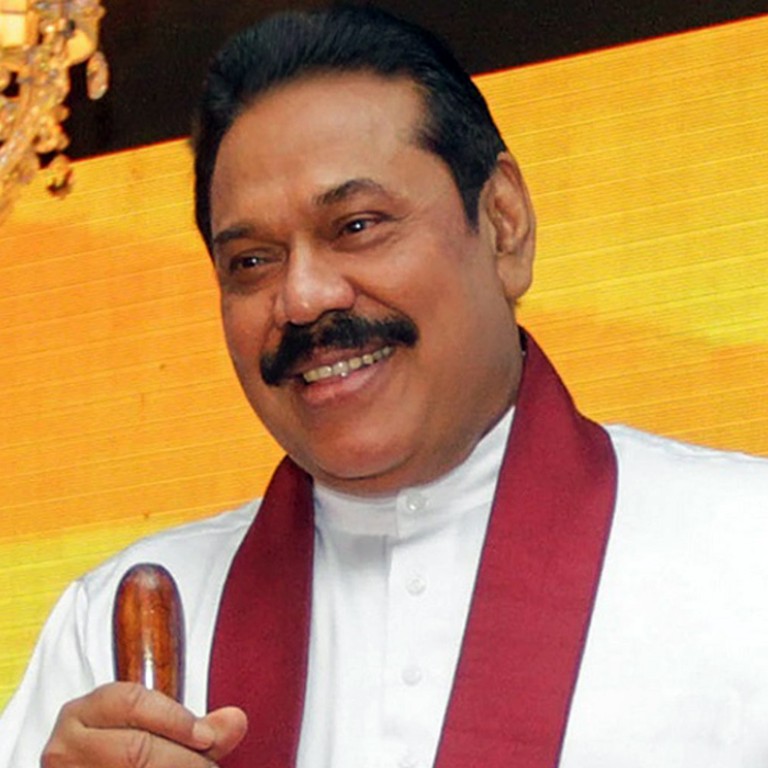
Sri Lanka's president Mahinda Rajapaksa to seek third term in election 2 years ahead of schedule
Sri Lanka will hold a presidential election in January - almost two years ahead of schedule - with Mahinda Rajapaksa seeking a third term, the information minister said yesterday.
Sri Lanka will hold a presidential election in January - almost two years ahead of schedule - with Mahinda Rajapaksa seeking a third term, the information minister said yesterday.
An early election had been widely expected. But the remarks by minister Keheliya Rambukwella were the first confirmation that Rajapaksa is seeking a fresh mandate after removing the two-term limit on the presidency after winning re-election in 2010.
"The presidential election will be held in January," Rambukwella said at a public meeting on the outskirts of the central city of Kandy. "I know the date but can't say it at the moment."
Official sources said January 7, 8 and 9 were considered astrologically auspicious for Rajapaksa and the vote could be held on any of those three days.
There had been speculation that Rajapaksa, who is also the finance minister, would call a snap election after he brought forward the 2015 national budget by a month to Friday.
His younger brother Basil, who is Economic Development Minister, opened an office for their party last month to lead the campaign for the president's re-election bid even before a formal election announcement.
His ruling United People's Freedom Alliance is expected to use the budget to try to boost its popularity after its share of the vote plummeted by over 20 percentage points in local elections last month.
Rajapaksa has already slashed electricity tariffs by 25 per cent, fuel prices by up to 20 per cent and the cost of LP gas used in cooking stoves by 10 per cent in recent weeks.
Despite the popular price reductions, the local election result last month was the party's worst performance since Rajapaksa came to power in 2005, and the main opposition United National Party more than doubled its vote.
Rajapaksa gained popularity among Sri Lanka's majority Sinhalese community by crushing a Tamil separatist rebellion in May 2009 and ending a 37-year-long Tamil separatist war.
